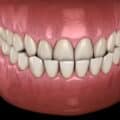Recognizing when someone needs professional help for substance abuse can be challenging, especially when you care about them. Addiction doesn’t happen overnight—it develops gradually, making the warning signs easy to miss or dismiss as temporary problems. This guide will help you identify the key indicators that suggest someone may need rehabilitation services.
Understanding the Basics
Addiction affects one in ten kiwis, yet many people who need help never receive it. The disease changes how the brain functions, making it extremely difficult for someone to stop using substances on their own. Recognizing the signs early can make the difference between successful recovery and continued struggle.
It’s important to understand that addiction isn’t a moral failing or lack of willpower. It’s a medical condition that requires professional treatment, just like diabetes or heart disease. The sooner someone gets help, the better their chances of recovery.
Physical Warning Signs
The body often shows the first visible signs of substance abuse problems. These physical changes can be subtle at first but become more pronounced as addiction progresses.
Dramatic Changes in Appearance Watch for significant weight loss or gain that happens quickly. People using stimulants often lose weight rapidly because drugs suppress appetite and they may forget to eat for days. Conversely, some substances or the lifestyle associated with addiction can lead to weight gain.
Poor personal hygiene becomes noticeable when someone stops taking care of basic needs. They might skip showers, stop brushing their teeth, or wear the same clothes repeatedly. This happens because addiction consumes so much mental energy that self-care becomes secondary.
Sleep and Energy Issues Chronic exhaustion is common, even when someone appears to be getting enough sleep. Substance abuse disrupts natural sleep patterns, and more than 65% of people in recovery struggle with insomnia. You might notice someone sleeping at unusual hours or seeming tired no matter how much rest they get.
Health Deterioration Frequent illnesses, unexplained injuries, or a general decline in physical health can indicate substance abuse. The person might complain of headaches, nausea, or other symptoms that seem to have no clear medical cause.
Behavioral Red Flags
Changes in behavior often provide the clearest indicators that someone needs help. These signs typically become more frequent and severe as addiction progresses.
Dishonesty and Secrecy Lying becomes routine for people struggling with addiction. They might be dishonest about where they’ve been, what they’ve spent money on, or how much they’re using substances. The addiction literally changes brain chemistry, affecting judgment and making deception feel necessary for survival.
Look for unexplained absences, secretive phone calls, or defensive reactions when asked simple questions about their activities. Money might disappear without explanation, or they might have new possessions they can’t account for.
Aggressive Behavior and Mood Swings Sudden outbursts of anger that seem disproportionate to the situation are warning signs. Research shows that people with addiction score much higher on anger assessments and have difficulty controlling their temper. These episodes might be followed by periods of extreme remorse or emotional withdrawal.
Mood swings can be dramatic—someone might appear deeply depressed one moment and unusually euphoric the next. These emotional extremes happen because substances interfere with the brain’s natural ability to regulate mood and emotions.
Neglecting Responsibilities Work performance typically suffers first. The person might start missing deadlines, calling in sick frequently, or receiving negative performance reviews. Students might see their grades drop significantly or start skipping classes regularly.
Family responsibilities also take a backseat. Parents might stop attending their children’s events, forget important appointments, or neglect household duties they previously handled reliably.
Psychological and Emotional Changes
The mental and emotional impacts of addiction can be just as telling as physical symptoms, though they might be harder to recognize initially.
Loss of Interest When someone stops enjoying activities they previously loved, it’s a significant red flag. This isn’t simple boredom or temporary burnout—it’s a profound disinterest in things that once brought joy. They might quit hobbies, stop socializing with friends, or abandon goals they were working toward.
Paranoia and Suspicion Increased paranoia often develops, especially with certain substances. The person might become convinced that others are plotting against them, or they might interpret innocent comments as threats. This suspicion can extend to family members and close friends who have shown no signs of betrayal.
Low Self-Worth and Shame People struggling with addiction often develop or worsen feelings of worthlessness. They might express beliefs that nobody likes them, that they’re beyond help, or that they don’t deserve good things. This creates a vicious cycle where they use substances to temporarily escape these feelings, which then makes the shame worse.
Impact on Relationships
Addiction doesn’t just affect the individual—it creates ripples throughout their entire social network. Understanding these relationship patterns can help you recognize when professional intervention is needed.
Isolation from Family and Friends The person might gradually withdraw from social activities and family gatherings. They may make excuses to avoid spending time with people who don’t use substances, or they might only socialize with others who share their habits.
Trust Issues Relationships become strained as dishonesty increases. Family members and friends start to doubt everything the person says, leading to constant tension and conflict. The person with addiction might also become suspicious of others, believing that people are trying to control or manipulate them.
Financial Problems Money issues often arise as more resources go toward obtaining substances. The person might ask for loans frequently, have unexplained financial difficulties, or even steal money from family members.
When Professional Help Is Needed
If you notice several of these signs occurring together and persisting over time, it’s likely that professional help is needed. Single incidents or temporary changes might not indicate addiction, but patterns of behavior are significant.
Consider rehab when:
- The person has tried to quit on their own multiple times without success
- Their substance use is interfering with work, school, or family responsibilities
- They’re experiencing health problems related to their substance use
- They’re engaging in dangerous behaviors while under the influence
- Family relationships have become severely strained or broken
Taking Action
You do not have to deal with a mental illness or addiction on your own — there are resources, helplines, support groups, websites and counsellors available.
If you believe someone needs rehab, approach the conversation with compassion rather than confrontation. Choose a time when they’re sober and calm, and focus on specific behaviors you’ve observed rather than making general accusations.
Remember that you can’t force someone into recovery—they have to want help for themselves. However, you can express your concerns, offer support, and help them find resources when they’re ready to seek treatment.
Rehab Options in New Zealand
New Zealand offers several types of addiction treatment services through the public health system, making help accessible regardless of financial circumstances.
Community Treatment Services These are outpatient programs where people can receive treatment while continuing to live at home. Community services include individual counseling, group therapy sessions, family therapy, and educational programs about addiction. This option works well for people who have strong support systems at home and can maintain their daily responsibilities while getting help.
Community treatment allows people to practice recovery skills in their normal environment, which can be beneficial for long-term success. Services are available in most areas throughout New Zealand and are typically free or low-cost through the public health system. (You can learn more about community treatment services here.)
Live-in Treatment Services For people who need more intensive support, residential or live-in treatment programs provide 24-hour care in a structured environment. These programs remove people from environments where substances are easily available and provide intensive therapy, medical support, and life skills training.
Live-in services typically last several weeks to several months, depending on individual needs. They’re particularly helpful for people who have tried outpatient treatment without success, have severe addiction, or lack stable housing or family support. (You can learn more about live-in treatment services here.)
Getting Started To access these services in New Zealand, you can start by contacting your GP (general practitioner) who can provide referrals to appropriate services. You can also contact addiction services directly – most regions have dedicated alcohol and drug services that can assess needs and provide treatment recommendations.
The process typically begins with an assessment to determine the most suitable type of treatment based on the severity of addiction, personal circumstances, and individual needs.
Conclusion
Recognizing signs that someone needs rehab is the first step toward helping them reclaim their life. While these indicators can be difficult to witness in someone you care about, early intervention significantly improves the chances of successful recovery.
Addiction is a treatable condition, and many people go on to live fulfilling, substance-free lives after getting proper help. Trust your instincts—if you’re concerned about someone’s substance use, those concerns are probably valid and worth addressing with professional guidance.
Remember that recovery is possible, and seeking help is a sign of strength, not weakness. Whether you’re concerned about yourself or someone you love, resources and support are available to help navigate this challenging but hopeful journey toward healing.
Have you read these articles?
 Can Invisalign Correct an Underbite? A Complete Guide
Can Invisalign Correct an Underbite? A Complete Guide
 Clear Aligner Technology Explained: What Auckland Patients Need to Know
Clear Aligner Technology Explained: What Auckland Patients Need to Know
 Osteopathy Or Physiotherapy – What You Need To Know
Osteopathy Or Physiotherapy – What You Need To Know
 Choosing the Right Mental Health Professional in New Zealand: Aligning Expertise with Personal Mental Health Concerns
Choosing the Right Mental Health Professional in New Zealand: Aligning Expertise with Personal Mental Health Concerns
 Root Canal Relief Simplified: Spot the Signs and Take Action
Root Canal Relief Simplified: Spot the Signs and Take Action






